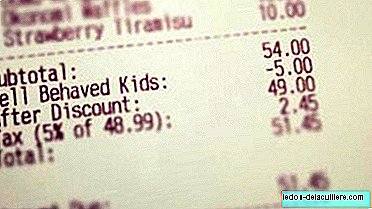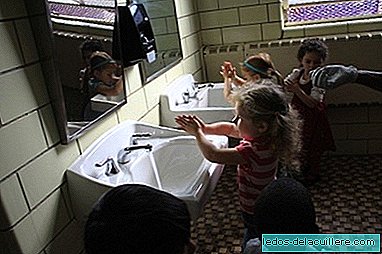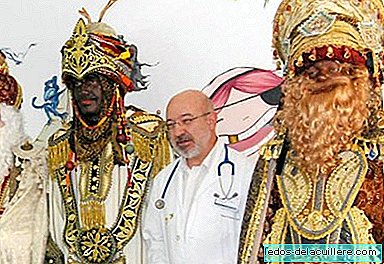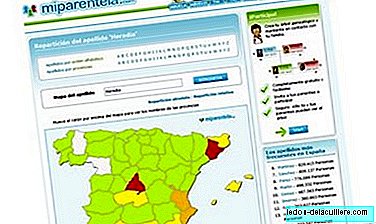
The age of the end of breastfeeding is a natural occurrence, but it is also cultural. If there were not in many cultures pressures to wean before the child spontaneously leaves the breast or there are guidelines that end breastfeeding prematurely, the word prolonged breastfeeding may not make much sense.
Breastfeeding today
The child, from about six months would try normal solid foods in his group, keeping the breast of his mother or other women in his circle as a source of milk, and would not stop breastfeeding abruptly, but, throughout the years, their requirements would be lower, until they become anecdotal, being able to continue breastfeeding until five, six or seven years.
In fact, the experiences of human groups that do not mark weaning for cultural reasons or of women who breastfeed for a long time without seeking weaning and without difficulties, are usually framed in this regard and the work of the anthropologist Dettwiler, a lactation specialist, points out in the same direction.
However, weaning, although influenced by unfounded beliefs about the harm that breastfeeding does from a certain age, is undoubtedly a cultural fact. And our society has gone through a time when breastfeeding was undervalued and it was considered abnormal to last more than a few months, in addition to having extended customs that harm prolonged breastfeeding, such as the idea that children should sleep in another room or that they should not be treated with their chest if they claim for night.
Although there is now more information with scientific bases, society has not changed so much and it is a minority of women who breastfeed for more than six months, let alone say one or two years. It is especially for them, so that they are understood, so if it is necessary to talk about prolonged breastfeeding.
Brief history of breastfeeding
The duration of breastfeeding has depended on historical factors, cultural, scientific, medical and, of course, personal decisions.
In Rome, in the Middle Ages or in the Islamic world we have data on normal breastfeeding for two or three years. We find many artistic representations both in Europe and in the East where prolonged lactations are shown as samples of mother-filial love.
And even, in the generation of our grandmothers or great-grandmothers, in the villages, it was normal to breastfeed the older children or hire, in the rich houses, nurses.
Today WHO and UNICEF recommend at least two years of breastfeeding, while the American Association of Pediatrics indicates that at least one year should breastfeed. We could say that, culturally, weaning within a few months of life is an exception. The wrong ones, in the historically reviewed human landscape and also according to scientific evidence, are those who think that it is rare for a child of a year or two to continue taking a tit.
Reasons for prolonged breastfeeding
When these people who are amazed, disgusted or scared to see a child of more than a year suckling and mess with him or the mother, we can explain, if we want, how wrong they are. Mothers who decide to continue with prolonged breastfeeding they usually refer insulting comments, teasing or pressures to wean, living with great isolation and even suffering in their social or family relationships.
Today, it is clear that the human baby receives the optimal feeding and protection of breast milk and does not need anything more than that for about six months and only in some cases some supplements may be necessary.
During the first year of life the human child feeds primarily on breast milk and from six months will complement it with foods that provide iron, which is the nutrient that could have a shortage.
Then, until two years, breast milk would complement other foods and there is no evidence that the milk is no longer nutritious and rich in protective substances from a certain age or that breastfeeding causes emotional problems.
In fact, asking that natural food proves that it is not harmful is absurd, rather it should be demanded of modern nutritional uses, artificial feeding or premature weaning.
It is shown today that premature weaning and the use of artificial milks is related to a higher incidence of numerous health problems, but these studies, given the low incidence of prolonged breastfeeding, are usually done on children who have breastfed six months and not two years, or better, the six years in which it is estimated that maturation of the immune system of a human child
If you know that breast milk still has protective factors for the immune system in addition to many other qualities and that evolves with the child's age, so, for now, there is no reason to consider that these beneficial effects do not continue to act after two years.
Actually, nobody should question or attack a mother for breastfeeding the time she decides, and less if it does so from ignorance. But even with all the arguments in favor of breastfeeding, no one should make a mother who does not breastfeed feel judged, because we do not know her reasons, her personal history or the problems that have made her decide to wean. No one should ask for explanations, at best, offer scientific and reliable information, but never judge. Neither does anyone of his reasons to breastfeed or wait for the child to wean on its own initiative, is an attack against who decides another way.
Offer the child these advantages of milk, which do not cease because Its composition remains protective and nutritionally adequate, it is a good reason to explain prolonged breastfeeding who is amazed to see her. Their ignorance should not imply a right to attack us, but, if necessary, we can cite the list of benefits that breast milk produces and that, although we have already talked a lot about Babies and more, we will review the following topics, thinking about helping those mothers who give prolonged breastfeeding and feel they are attacked for it. Of course, if it is the situation of any of our readers, I encourage you to share the experience with us in the comments.












